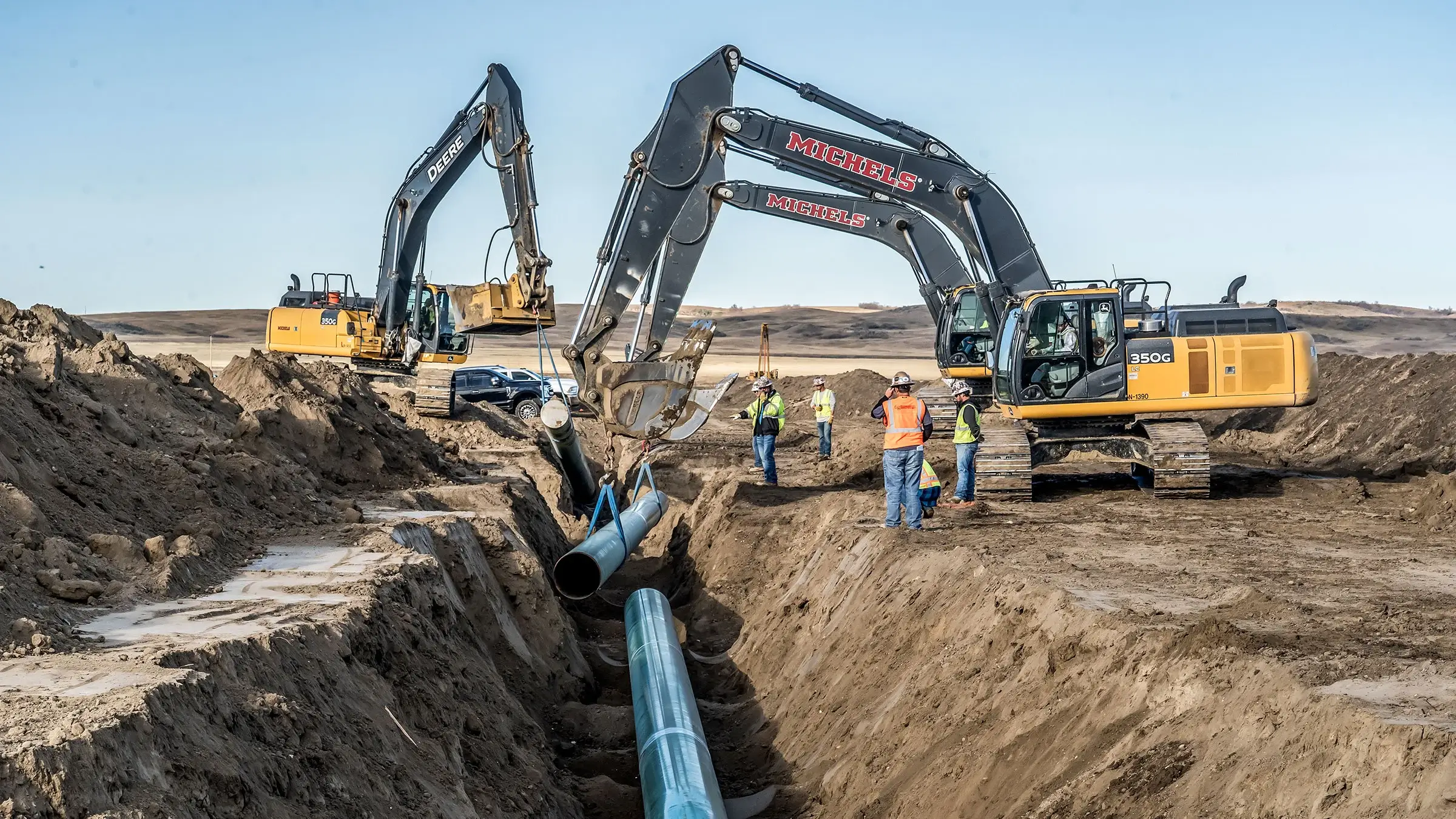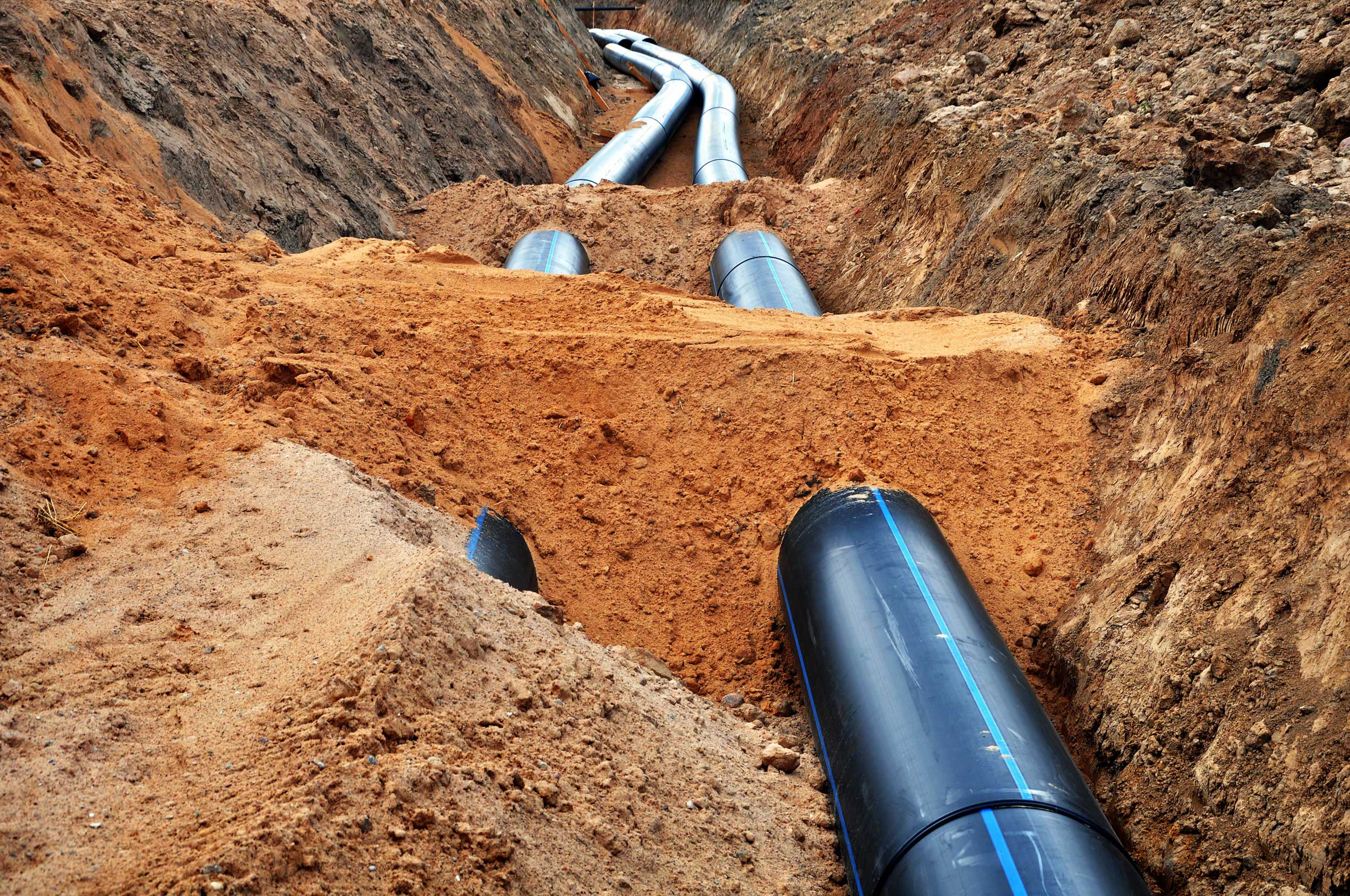A Deep Dive Into Pipes Installation: Essential Elements and Factors To Consider for Successful Projects
Efficient pipe installation is a vital element of engineering jobs. It entails a variety of aspects, from product option to precise sizing and layout. Each choice can significantly influence the system's effectiveness and long life. Understanding these elements is essential for avoiding expensive blunders. Creek Pipe contact. As groups navigate through the complexities of installation, several key factors to consider arise that warrant attention. What are the pivotal elements that can make or break a piping task?
Recognizing Pipe Products and Their Applications
When choosing pipe products, one have to take into consideration the certain applications and ecological problems they will certainly face. Different materials offer distinct residential properties that deal with different requirements. PVC is light-weight and immune to deterioration, making it ideal for water circulation systems. Conversely, steel pipelines offer toughness and resilience, suitable for high-pressure applications however might call for protective finishes to prevent rust.Copper pipelines are favored for plumbing due to their antimicrobial homes and convenience of installation, while polyethylene is commonly utilized in below ground applications due to its flexibility and resistance to cracking.The selection of material likewise rests on temperature level extremes, chemical exposure, and installation area. For high-temperature applications, materials like CPVC or PEX can be helpful. Ultimately, recognizing the attributes and limitations of each product help in making notified choices that improve system efficiency and durability.
Value of Proper Sizing and Design
Appropriate sizing and design of pipelines are critical for making sure suitable circulation prices and lessening stress loss. These elements also play a substantial duty in figuring out the compatibility of materials used in the installation. An organized technique to sizing and design can significantly improve the performance and durability of a piping system.
Impact on Circulation Prices
Circulation rates in piping systems are seriously influenced by the sizing and layout of the pipelines. Effectively sized pipelines ensure that the fluid can relocate efficiently, minimizing turbulence and making the most of circulation ability. Oversized pipelines can cause lowered flow velocities, while small pipes may restrict circulation, resulting in enhanced rubbing and prospective obstructions. The layout should likewise consider variables such as pipe material, interior surface smoothness, and layout, as these add to the general efficiency of fluid transport. Furthermore, the plan of installations and connections within the system can influence circulation prices. Precise focus to pipe sizing and design is crucial for optimizing circulation efficiency in any kind of piping installation project.
Stress Loss Considerations

Just how can press loss substantially impact the performance of a piping system? Pressure loss is an important variable that can considerably lessen the efficiency of fluid transport systems. When pipes are poorly sized or designed, too much pressure loss might take place, resulting in decreased circulation rates and boosted energy usage. This inadequacy can lead to greater functional costs and possible system failures. Correct sizing and design are vital to reduce stress loss, making sure that liquid dynamics remain excellent throughout the system. Engineers need to meticulously consider variables such as pipe diameter, size, and product to achieve an efficient equilibrium. Ultimately, attending to pressure loss during the style phase can enhance dependability and long life, making it essential for effective piping tasks.
Material Compatibility Variables
Pressure loss is not the only aspect that can influence the performance of a piping system; product compatibility likewise plays a significant function in general efficiency. Guaranteeing that the products used in a piping system are compatible with the liquids they will certainly carry is important. Different products can react detrimentally to numerous chemicals, resulting in deterioration, destruction, or contamination. This can eventually compromise the stability of the system and impact its durability. Additionally, proper sizing and style are very important to accommodate thermal expansion and tightening, which can further affect product performance. Evaluating factors such as temperature level, stress, and chemical make-up is vital in selecting appropriate materials, consequently boosting system integrity and minimizing upkeep expenses in the long-term.
Strategies for Accurate Pipe Installation
Accurate pipe installation is important for assuring system performance and durability. Numerous methods can boost the accuracy of this procedure. Cautious measurement is necessary; installers ought to use top quality tools such as laser degrees and tape steps to determine the precise sizes and angles required. Next off, correct pipe reducing techniques, like using a pipeline cutter rather of a hacksaw, guarantee clean sides that facilitate better links. In addition, using alignment tools, such as pipe jigs, can significantly enhance precision throughout setting up. It is also suggested to take into consideration thermal growth; enabling ample spacing and growth joints can protect against future misalignments. The installation group must adhere to producer standards to stick to details referrals related to each pipe kind. By carrying out these strategies, the possibility of leaks and system failures reduces, eventually adding to an extra trustworthy piping system.
Guaranteeing Pipe Placement and Support
Appropriate placement and support are critical to the stability and efficiency of any kind of piping system. Misalignment can cause boosted anxiety on joints, prospective leakages, and minimized effectiveness. To guarantee correct positioning, it is important to make use of appropriate tools such as laser degrees and positioning determines. These instruments aid accomplish exact positioning, ensuring that pipelines are installed according to layout specifications.Support web link systems need to be developed to accommodate thermal development and tightening, as well as the weight of the pipes and their contents. Picking the ideal kind of assistances, wall mounts, and brackets is vital. Each need to be mounted at defined intervals to avoid sagging or undue anxiety on the pipes. Normal inspections adhering to installation can assist determine any type of misalignments or indications of insufficient support. By prioritizing positioning and assistance, one can substantially boost the durability and performance of the piping system.
Typical Installation Mistakes to Prevent

Checking and Evaluation for Quality Control
Although the installation process may show up total, detailed testing and evaluation are critical to guaranteeing the long-term reliability of a piping system. Various techniques are used to examine the stability of the installation, consisting of pressure examinations, aesthetic assessments, and non-destructive testing (NDT) techniques. Stress tests verify that the system can stand up to operational problems without leaks, while visual examinations aid identify any type of noticeable issues in the pipes or joints. NDT approaches, such as ultrasonic or radiographic testing, supply insights into the product stability without jeopardizing the system.Additionally, documenting the screening results is necessary for future recommendation and compliance with market criteria. This documents offers not only as a quality guarantee action but also as a legal secure. Ultimately, a detailed screening and evaluation procedure adds to the overall security and performance of the piping system, ensuring it satisfies the needed efficiency standards gradually.
Upkeep Tips for Long-lasting Pipe Systems
Maintaining a pipe system calls for routine examinations and checking to recognize prospective problems before they escalate. Implementing efficient cleansing strategies is additionally important for avoiding accumulation that can impede efficiency. With each other, these practices add to the durability and reliability of the piping infrastructure.
Routine Assessments and Monitoring
Routine examinations and tracking are important for ensuring the durability and efficiency of pipe pop over to this site systems. Routine analyses can assist identify potential issues such as leaks, corrosion, or blockages prior to they intensify right into substantial troubles. Implementing a schedule for regular assessments permits for the very early detection of damage, allowing prompt repairs. Monitoring pressure levels and circulation prices can likewise give beneficial insights into system performance, making sure that any type of abnormalities are dealt with without delay. In addition, the usage of advanced modern technologies, such as infrared cams or ultrasonic testing, can improve the examination procedure by offering comprehensive info about pipe problems. Inevitably, constant tracking and assessments contribute to the reliability and sturdiness of pipe systems, reducing the threat of expensive repairs and downtime.

Efficient Cleaning Techniques
Effective cleaning techniques are vital for maintaining the honesty and functionality of pipe systems. On a regular basis arranged maintenance, such as flushing systems with water, assists eliminate debris and accumulation. For even more stubborn obstructions, specialists commonly advise hydro jetting, which uses high-pressure water to tidy pipe interiors thoroughly. Chemical cleaners can likewise be utilized yet must be selected very carefully to stay clear of harmful pipelines. Furthermore, employing tools like pipe video cameras can assist in determining trouble areas and making certain reliable cleansing. Keeping appropriate drain and avoiding the disposal of harmful compounds down pipelines better add to longevity. In general, regular cleaning techniques not only improve performance yet additionally reduce the risk of expensive repair services in the future.
Regularly Asked Inquiries
What Are the Labor Expenses Related To Pipe Installation Projects?
Labor costs for pipe installation important source projects vary widely, influenced by elements like task intricacy, local wage prices, and needed skills (Creek Pipe Midland). Commonly, these expenses can vary from $50 to $100 per hour, depending upon the workforce involved
Just How Do Local Rules Affect Pipe Installation Practices?
Neighborhood laws greatly affect pipe installation practices by developing security standards, material specs, and installation methods. Compliance with these policies warranties task safety and security, ecological security, and adherence to regional codes, eventually impacting total task success and prices.
What Tools Are Necessary for Pipe Installation?
Vital tools for pipe installation consist of monkey wrench, cutters, and fittings. Furthermore, sealers, determining tapes, and degrees assure accuracy and toughness. Proper equipment advertises efficiency and adherence to safety requirements throughout the installation process.
Exactly How Can Weather Conditions Impact the Installation Refine?
Weather substantially impact the installation procedure, as extreme temperature levels, rain, or wind can affect product integrity, employee safety and security, and job timelines. Appropriate planning and scheduling are crucial to reduce these prospective challenges during installation.
Are There Guarantees for Mounted Pipe Solutions?
Guarantees for set up pipe systems typically vary by manufacturer and installation professional. Generally, they cover problems and handiwork for a specific duration, making certain the system's dependability and supplying assurance to the homeowner.